
Fast, affordable Internet access for all.

Ruston, Louisiana officials say they’re throwing in the towel, and will be selling a city-owned fiber network that has existed for the better part of 15 years.
City officials say they finalized the decision at a city council meeting earlier this month, though they’d already sent out a Request for Proposal (RFP) for potential bidders as early as February.
The network was first constructed back in 2010, and consists of over 136 miles of fiber connecting roughly 300 area businesses. The network doesn’t currently service residential customers, though that could change under new ownership.
The city had briefly considered expanding the network in 2018, but scrapped the idea two years later. Ruston Mayor Ronny Walker tells the Lincoln Parish Journal that numerous factors went into the city’s decision, including new broadband construction currently being funded by a historic new wave of federal broadband infrastructure subsidies.
“Six years ago we did a study and thought about getting into the private/home internet service,” Walker said. “We were moving along that track and then four years ago, when the federal government starting putting so much money into broadband across the United States — billions of dollars to the state of Louisiana — that’s when we decided as a staff it was time to exit that business because there were so many other large companies doing that.”

Like countless communities, Ruston sees little meaningful broadband competition. Cable giant Optimum enjoys a monopoly over broadband access across much of the city, with AT&T DSL and fiber scattered across some neighborhoods. This muted competition has resulted in spotty access, slow speeds, high prices, and substandard customer service.
Joplin, Missouri has announced a new broadband public-private partnership (PPP) with ALLO Fiber that should help boost competition and lower rates across the city of 52,000. The partnership poses a particular challenge to regional cable giant CableOne, which currently enjoys a monopoly over broadband access across a whopping 83 percent of the city.
Outside of a $5 million city contribution to harden key city infrastructure, the network will be entirely built, funded, owned and operated by ALLO.
The origins of the project extend back to 2019, when the city first began exploring efforts to modernize Joplin infrastructure under a “smart city” initiative. By 2021 the city had hired Finley Engineering and CCG Consulting to conduct a feasibility study exploring the technical and financial details of a city-owned fiber network.
Fed up by expensive and substandard broadband access and buoyed by public support, in 2022 the city issued a request for proposal (RFP) for a partner that would help build such a network. The city received nine responses to the RFP. Last month, the Joplin City Council approved an ordinance by a vote of 8-1 selecting ALLO as the city’s primary partner.
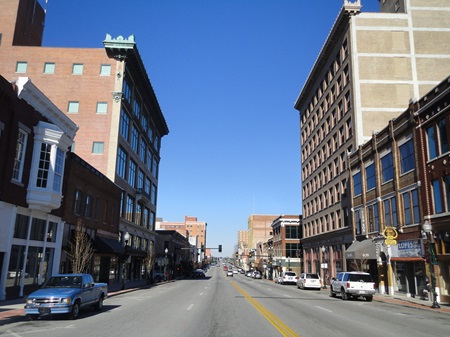
“ALLO really stood out because they were coming to our market without asking us for any assistance,” Troy Bolander, Joplin’s head of Planning, Development & Neighborhood Services, recently told Fierce Network.
Boulder, Colorado officials have issued a new request for proposal (RFP) seeking partners for their ongoing quest to deliver affordable fiber to the city of 104,000.
According to an announcement by Boulder leaders, the city is offering potential partners a long-term lease of city-owned dark-fiber backbone infrastructure and a right of way agreement for the construction and operation of a network delivering Internet service offering 1 Gbps or more to all Boulder homes and businesses. Responses are due by March 1.
When we last checked in with Boulder in April of last year, the city was putting the finishing touches on a $20 million, 65-mile dark fiber backbone, funded by the competitive sale of its 2018 Broadband Taxable Certificates of Participation (COPs). The competitive sale was used to ensure that Boulder could get the lowest interest rates possible in financing the construction of the backbone.
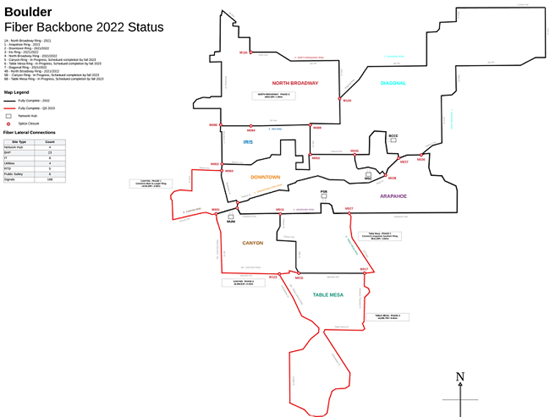
While the process was technically started back in 2018, and then delayed by the pandemic, city officials remained committed to moving the project forward.
“What we are trying to do in Boulder – if we can find the right partner or partners – is about creating more competition; increase the competitive marketplace locally,” project manager and independent consultant Tim Scott told ILSR last year.
Like so many U.S. communities, Boulder sees limited competition between the local cable company (Comcast) and the local phone company (Centurylink/Lumen) resulting in slow speeds, spotty coverage, high prices, and substandard customer service.
Los Alamos County, New Mexico joins the growing list of municipalities looking to explore a community-owned broadband network in a bid to improve resident access to fast, affordable, next-generation fiber.
The request for proposal (RFP), originally issued August 13, called for design, planning, and construction partners for a locally-owned and operated fiber network. An updated RFP was issued on December 12, 2023 stating that applications for phase two of their planned project were deemed “incomplete.” The county has given potential partners until January 12 to respond.
“The county team is now reviewing the submitted proposals,” the county states. “Once one is selected and an agreement finalized, the county will request the council award a contract. This may occur in early 2024.”
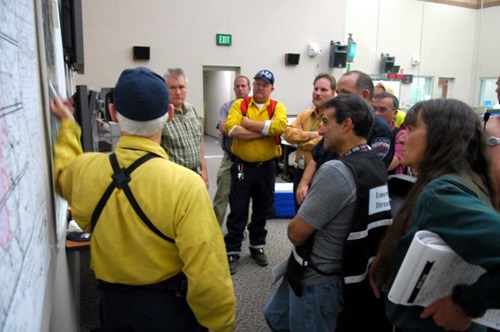
The RFPs come after county council leaders passed a motion last January declaring “…that high-quality reliable telecommunication including broadband is an essential service.” Los Alamos County officials did not respond to repeated requests for comment asking for more detail on the county’s goals. Local outlets suggest more details should emerge in 2024.
New Mexico is poised to receive more than $635 million in broadband subsidies courtesy of the Broadband Equity Access and Development (BEAD) program, made possible in turn by the 2021 Infrastructure Investment and Jobs Act.
Harnessing its American Rescue Plan funds, the city of Syracuse is seeking a partner to launch a pilot project as a precursor to creating a citywide municipal broadband network and to support the city’s broader digital inclusion efforts.
In his 2022 State of the City address, Syracuse Mayor Ben Walsh laid out the vision, recognizing that now is a time of opportunity.
"At no time in the past half century have conditions aligned so favorably for the City of Syracuse," Walsh said. "Population is growing. Graduation rates are rising. Private investment and job creation are again on the upswing. Our city fund balance has grown. The American Rescue Plan provides an unprecedented injection of federal aid — $123 million – to address challenges created and made worse by the pandemic. The Bipartisan Infrastructure Framework will pour tens of millions into the infrastructure challenges that always seemed just out of reach – roads, water, and broadband."
Syracuse wants to seize the opportunity by investing in both improved telecommunication infrastructure and digital literacy programs.
It has led the mayor’s office to issue a Request-for-Proposals (RFP) for the design, implementation and maintenance of a municipal network that would target households in Syracuse not currently served by the city’s incumbent providers (AT&T, Spectrum, and T-Mobile Home Internet).
The deadline for submitting proposals is 2:30 pm ET October 11.
Seeking Open Ended Innovative Proposals
In late August, Warren County Commissioners in northwest Pennsylvania issued a RFP that sought to establish a public-private partnership to bring high-speed Internet connectivity to rural parts of the county near the Allegheny National Forest and River.
County officials are now reviewing proposals for a plan to “design, engineer, procure, install, operate, manage, and maintain high speed Internet to connect and serve the underserved rural areas of the county.” The initiative is part of the county Broadband Task Force’s effort to close the digital divide in a region that is nearly 900 square miles and home to 40,000 residents.
The RFP calls for three required outcomes:
And while the RFP does not specifically require wireless network proposals, the RFP puts its thumb on the scale in favor of proposals that detail a “Primary Wireless Solution.”
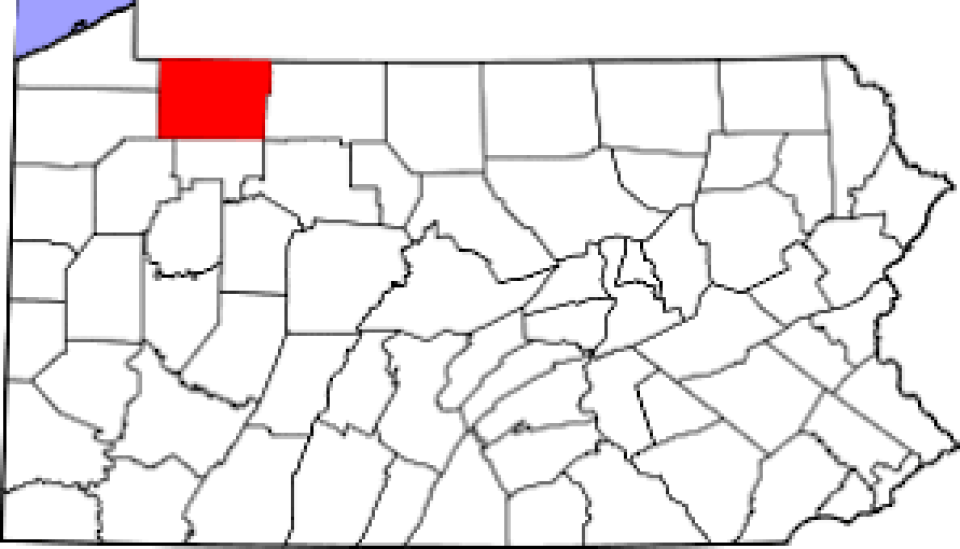
The county would own the infrastructure for three years and, during that time, the Internet service provider who wins the bid will pay a rights-of-way agreement for the network, and will be responsible for the management and maintenance of the network. The county is also willing to provide access to its vertical assets to enable the deployment of wireless technology.
The RFP does not specify required subscription costs or low cost options for subscribers but does ask applicants to provide a five-year customer rate table and specifies that they are looking for a project that is beneficial to all parties, including the residents.
Harnessing its American Rescue Plan funds, the city of Syracuse is seeking a partner to launch a pilot project as a precursor to creating a citywide municipal broadband network and to support the city’s broader digital inclusion efforts.
In his 2022 State of the City address, Syracuse Mayor Ben Walsh laid out the vision, recognizing that now is a time of opportunity.
"At no time in the past half century have conditions aligned so favorably for the City of Syracuse," Walsh said. "Population is growing. Graduation rates are rising. Private investment and job creation are again on the upswing. Our city fund balance has grown. The American Rescue Plan provides an unprecedented injection of federal aid — $123 million – to address challenges created and made worse by the pandemic. The Bipartisan Infrastructure Framework will pour tens of millions into the infrastructure challenges that always seemed just out of reach – roads, water, and broadband."
Syracuse wants to seize the opportunity by investing in both improved telecommunication infrastructure and digital literacy programs.
It has led the mayor’s office to issue a Request-for-Proposals (RFP) for the design, implementation and maintenance of a municipal network that would target households in Syracuse not currently served by the city’s incumbent providers (AT&T, Spectrum, and T-Mobile Home Internet).
The deadline for submitting proposals is 2:30 pm ET October 11.
Seeking Open Ended Innovative Proposals
Similar to a recent request for proposals from Onondaga County (where Syracuse is the county seat), the city is seeking open-ended and innovative proposals. City officials have adopted a technology neutral approach and are not specifically asking for proposals to build a fiber network as most new municipal broadband proposals involve. Still, the city does have some parameters in mind.
Yavapai County, Arizona is pushing forward with a $20 million plan to shore up broadband access across the region. While dramatically scaled back from a $55 million proposal pushed last year, county leaders are hopeful that the effort still drives significant upgrades across the rugged and predominantly rural desert county.
Last fall, Yavapai County officials announced they would be committing $20 million of the county’s $45.6 million in American Rescue Plan Act (ARPA) funds toward its Broadband Final Mile Initiative, a project spearheaded by the Yavapai County Education Service Agency (YCESA) and designed to bring affordable broadband to every student in Arizona.
The county issued an RFP last October looking for broadband providers willing to use ARPA funding to push symmetrical 100 Megabit per second (Mbps) connections further into rural regions. The expansion was to lean heavily on a 2018 Yavapai County decision to spend $3.7 million on a fiber-optic middle mile network connecting 74 schools and libraries.
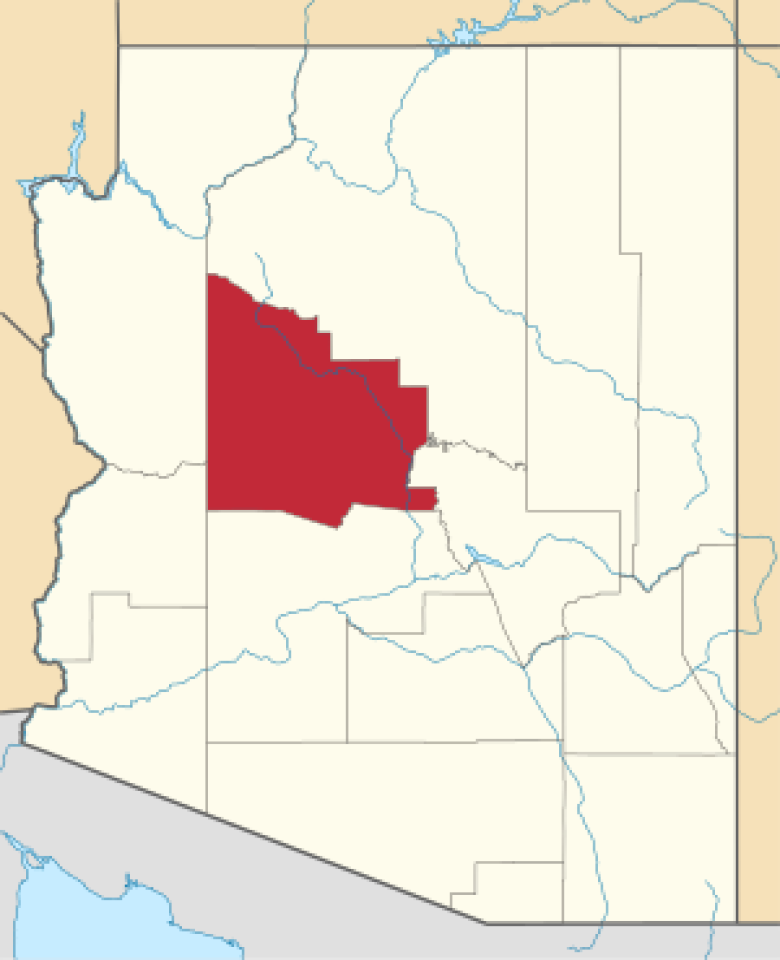
“The proposals have been reviewed and contracts have been awarded,” Yavapai County School Superintendent Tim Carter told ILSR in an update. “Cox Communications has been awarded the contract for Black Canyon City and Congress, and Altice USA has been awarded the contract for Mayer, the Beaver Creek area, Cornville, and Paulden.”
Cox and Altice Win Grant Awards
Three years ago, the National Digital Inclusion Alliance (NDIA) ranked Cleveland as the worst-connected city in the United States (with more than 100,000 households).
City leaders are now using its American Rescue Plan funds to make that dishonorable distinction a thing of the past with a plan to invest $20 million to get the “Comeback City’s” digital future rockin’ n rollin’.
Although the city (pop. 383,000), home to the Rock & Roll Hall of Fame, is currently underserved by AT&T, Charter Spectrum, and T-Mobile, earlier this summer the city issued a Request for Proposals (RFP) that “seeks one or more partners” to help bridge Cleveland’s digital divide following a two-phased approach that first addresses the city’s immediate needs before tackling its longer-term strategic goals.
More specifically, the RFP details “the Phase I goals: ensuring that individuals who do not engage online can become full Internet users as quickly as possible, relying on digital adoption and affordable access strategies. (While) the Phase II goals (envision) —ubiquitous fiber optic connections and Smart City deployments.”
Or, as Cleveland Mayor Justin Bibb told Cleveland.com:
The first phase is on making sure on the short-term basis we connect as many families as we can to high-speed broadband, and the second phase will consist of making sure we lay fiber all across the city so we can be competitive, not just five years from now, but 20, 30 years from now, as a city and as a region.
Technically, the RFP that was issued is to fully implement the first phase of the city’s vision and set the table for the second phase. Work beyond the $20 million the city has set aside would require the issuance of a second RFP.
While it’s been somewhat of a rarity in larger metropolitan areas, the city of Alexandria, Virginia (pop. 158,000) is hoping to bring residents fast, reliable Internet access by building out an institutional network (I-Net) in the state’s seventh largest city.
Construction of the I-Net, which is expected to be completed by February 2025, will connect the city’s schools, public safety buildings and other facilities, and lay the foundation for a city-wide fiber-to-the-home network.
Instead of waiting for Comcast to give residents the service they need, in August the city broke ground on the project that was long in the works. The main aim is to connect government facilities with the hope that the city will lease out the conduit to a private Internet Service Provider (ISP) as a way to incent more broadband competition.
According to the city’s broadband webpage: the “Municipal Fiber project will create potential partnership opportunities to expand consumer choice and increase available speeds for broadband services.” If the city moves forward with a public-private partnership, it could make the municipal network one of the largest in the country.
City officials have created a Request for Proposals (RFP) process, in which they will be looking for ISPs that have a track record of connecting other communities in the state. The winning bidder would then be given a contract to build a fiber network that best serves the public interest, working closely with the city in deploying network infrastructure.
Broadband In the Works
Virginia is one of the 17 states that puts restrictions on municipal networks, mandating that “municipal networks impute private sector costs, pay additional taxes, set excessively high prices, and/or refrain from subsidizing affordable service, in the name of protecting private ‘competition.’” But that hasn’t stopped city officials from finding solutions to the lack of high-speed connectivity in the community.